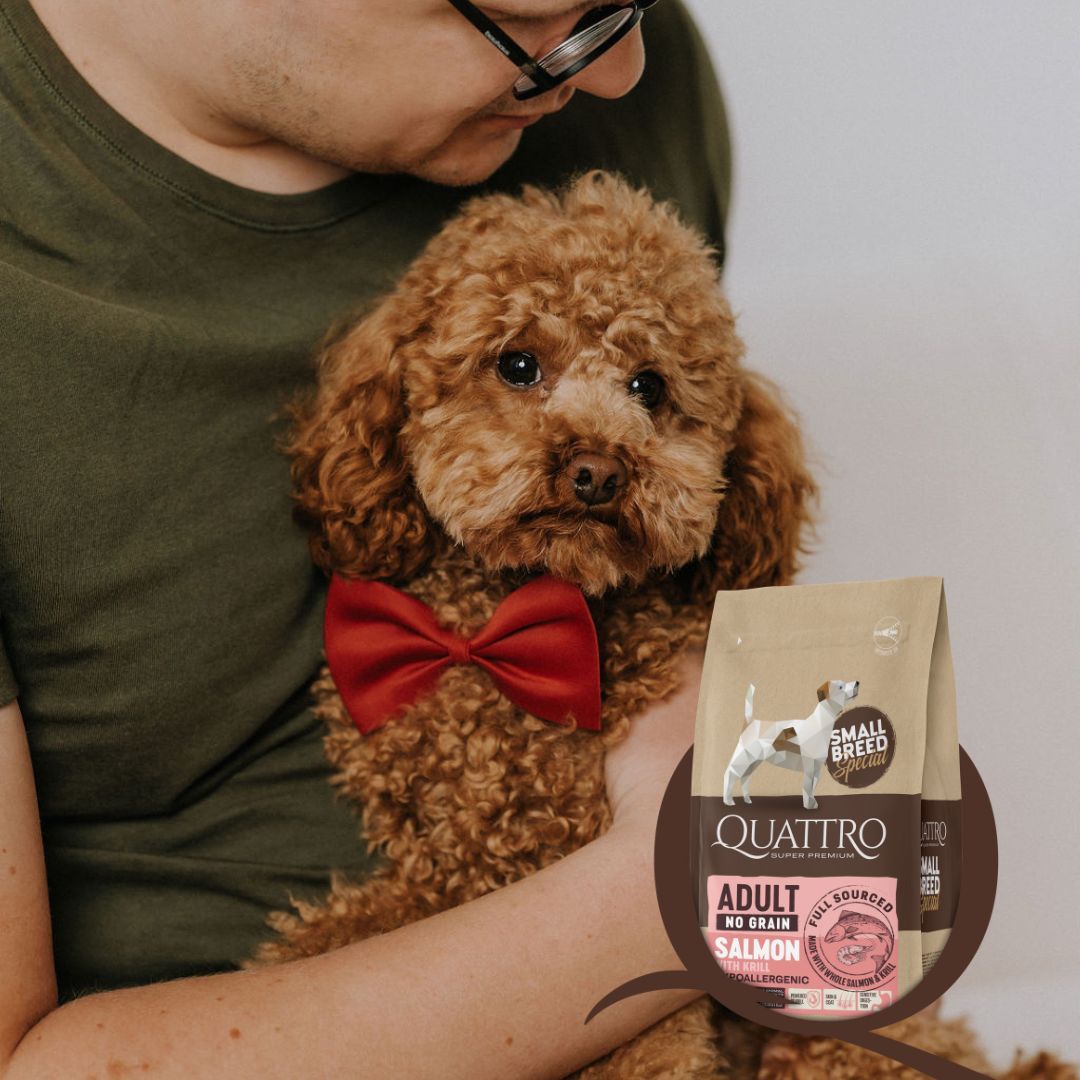Dog Owners and Veterinarians Agree: Small Breed Dogs Require Special Care and Feeding
While dog lovers and veterinarians alike can attest to the popularity of Yorkshire Terriers, Chihuahuas, Scottish Terriers, Maltese Bichons or other small breed dogs in Lithuania, their unique needs and care requirements often go unnoticed. As veterinarian Marius Mincė emphasizes, proper care for these tiny companions starts with understanding their unique physiology and addressing their daily needs.
Faster Metabolism and a Sensitive Digestive System
The growing popularity of small breed dogs can be attributed not only to their playful personalities but also to their compact size, making them ideal companions for city dwellers with limited living space. However, according to veterinarian Marius Mincė, small breed dogs possess unique physiology that differs from their larger counterparts. Additionally, their longer lifespans mean they are more prone to various health issues as they age. Therefore, proper nutrition and preventive healthcare are crucial for their well-being.
"Small breed dogs have a faster metabolism due to their smaller body size and higher activity levels, burning more calories per unit of time than larger breeds," explains Mincė. "This necessitates a balanced diet rich in nutrients to maintain optimal energy levels. When choosing dry food, opt for super premium options specifically designed for small breeds. These dogs also have a more sensitive digestive system and are prone to diarrhea and vomiting, making it essential to select easily digestible, hypoallergenic food."
Mincė highlights the importance of protein sources in their diet, recommending animal-based proteins like duck, salmon, and lamb, which are easier to digest. "Protein helps maintain muscle mass and controls weight, as these little dogs are more prone to obesity," he says. "Their food should also be easily digestible for maximum nutrient absorption. Grain-free diets are recommended for several reasons. Firstly, grains are a common allergen for dogs. Secondly, grain-based dog food has a higher glycemic index, causing blood sugar spikes and rapid energy crashes. Our goal is to provide sustained energy levels throughout the day, which is crucial for their active lifestyles. Additionally, fiber sources like sweet potatoes and beets are essential for gut health and consistent energy levels."
Super premium food like Quattro, known for its excellent palatability due to its innovative freeze-dried meat coating technology, exemplifies these qualities. "Freeze-drying ensures that each kibble is coated in meat, preserving all essential nutrients, and pets simply adore its taste and aroma," Mincė adds.

Special Attention to Dental Hygiene
Veterinarian Mincė emphasizes the importance of dental hygiene for small pets, as poor oral care can lead to serious health problems, including infections and tooth loss. "I often say that all dogs, regardless of breed, have the same number of teeth. However, small breed dogs have unique jaw structures. While it's commonly believed that small breed dog food should have small kibbles, I'd like to dispel this myth. Due to their jaw structure and longer lifespans, small breed dogs are more prone to dental issues like plaque, tartar, and gum disease. The right food can act as a preventative measure and delay dental problems. Don't be afraid of larger kibbles, as they help clean teeth naturally during chewing and reduce tartar buildup. Additionally, longer chewing helps regulate satiety and prevents overeating," the specialist emphasizes.
Veterinarian Marius Mincė concludes the conversation with these key takeaways:
Regularly check your pet's weight and consult a veterinarian if you notice changes in appetite or behavior.
Proper nutrition is vital for your dog's health and well-being. Consider their breed and age when selecting food – small breed dogs mature faster (9-12 months) than large breeds (18-24 months).
Ensure your dog has constant access to clean, fresh water.
Avoid giving your pet human food.
Brush your dog's teeth regularly.
Following these tips will significantly contribute to your furry friend's overall health.